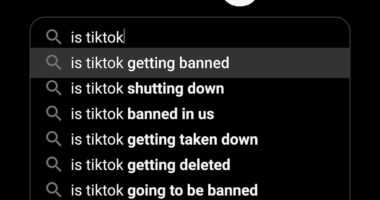User Generated Content (UGC) refers to any form of content, such as images, videos, testimonials, and social media posts, that is created by users or consumers rather than brands or professional content creators. The UGC Program is a platform or initiative created by brands or companies to encourage their customers or followers to create and share content related to their products or services. This content is then used by the brand for marketing purposes, such as on their website, social media channels, or in advertising campaigns.
UGC has become increasingly popular in recent years as brands recognize the value of authentic, user-created content in building trust and engagement with their audience. By leveraging UGC, brands can tap into the creativity and enthusiasm of their customers, while also benefiting from the social proof and authenticity that comes with content created by real people. The UGC Program provides a structured way for brands to collect and utilize this content, often offering incentives or rewards to users who participate.
Key Takeaways
- The UGC Program is a platform that allows users to create and share content related to a brand or product.
- To apply for the UGC Program, users can typically fill out an application form on the brand’s website or social media platforms.
- Tips for becoming a UGC creator include creating high-quality content, engaging with the brand’s community, and following the brand’s guidelines.
- Benefits of joining the UGC Program may include exposure, recognition, and potential rewards or incentives from the brand.
- Brands are utilizing user-generated content for marketing purposes, such as social media campaigns, website features, and advertising materials.
- UGC creators may receive communication and guidelines via email from the brand, including updates, tips, and best practices for creating content.
- Success stories from UGC creators can include increased followers, engagement, and even partnerships or collaborations with the brand.
How to Apply for the UGC Program
If you’re interested in becoming a part of a UGC Program as a creator, the first step is to research and identify brands or companies that have an existing program in place. Many brands will have information about their UGC Program on their website or social media channels, including details on how to apply and what types of content they are looking for. Some brands may also have specific hashtags or submission guidelines for UGC content.
Once you’ve identified a brand or program you’re interested in, the next step is to follow their application process. This may involve filling out a form on their website, submitting samples of your work, or using a specific hashtag when sharing your content on social media. It’s important to carefully follow the brand’s guidelines and requirements to ensure that your content is considered for inclusion in their UGC Program.
After applying, it’s important to stay engaged with the brand and continue creating and sharing relevant content. Building a strong relationship with the brand and consistently creating high-quality content can increase your chances of being selected as a UGC creator.
Becoming a UGC Creator: Tips and Tricks
Becoming a successful UGC creator requires a combination of creativity, authenticity, and consistency. Here are some tips and tricks for aspiring UGC creators:
1. Understand the brand: Before creating content for a brand’s UGC Program, take the time to understand their values, target audience, and the type of content they are looking for. This will help you create content that aligns with the brand’s image and resonates with their audience.
2. Be authentic: Authenticity is key when it comes to UGFocus on creating genuine, relatable content that reflects your own experiences and perspective. Avoid overly promotional or staged content, as this can come across as inauthentic to your audience.
3. Engage with the brand: Building a strong relationship with the brand can increase your chances of being selected as a UGC creator. Engage with the brand on social media, participate in their campaigns, and show your enthusiasm for their products or services.
4. Consistency is key: Consistently creating and sharing high-quality content is essential for becoming a successful UGC creator. This can help you stand out to brands and increase your chances of being selected for their UGC Program.
By following these tips and staying true to your own voice and style, you can increase your chances of becoming a sought-after UGC creator for brands.
Benefits of Joining the UGC Program
Joining a UGC Program as a creator can offer a range of benefits, both personally and professionally. Some of the key benefits include:
1. Exposure: Participating in a UGC Program can provide exposure for your content and help you reach a wider audience. Brands often feature UGC on their website, social media channels, and in advertising campaigns, giving creators valuable visibility.
2. Collaboration opportunities: Joining a UGC Program can open up opportunities for collaboration with the brand, such as sponsored content, product partnerships, or even paid opportunities. This can be a valuable way to grow your personal brand and expand your creative opportunities.
3. Recognition: Being selected as a UGC creator for a brand can provide recognition for your work and talent. This can help you build credibility in your niche and attract new followers or opportunities.
4. Rewards and incentives: Many brands offer rewards or incentives for creators who participate in their UGC Program, such as free products, discounts, or exclusive access to events or experiences.
Overall, joining a UGC Program can be a rewarding experience that offers exposure, collaboration opportunities, recognition, and rewards for creators.
How Brands are Utilizing User Generated Content
Brands are utilizing user-generated content in a variety of ways to enhance their marketing efforts and engage with their audience. Some common ways that brands are leveraging UGC include:
1. Social media campaigns: Many brands use UGC as part of their social media campaigns, encouraging users to share photos or videos using a specific hashtag related to the brand or a particular product. This can help create buzz around the brand and generate authentic content from real customers.
2. Website and advertising: Brands often feature UGC on their website and in advertising campaigns to showcase real-life experiences with their products or services. This can help build trust and credibility with potential customers by providing social proof.
3. Product development: Some brands use UGC as inspiration for product development, gathering feedback and ideas from their customers to inform new product launches or improvements.
4. Community building: By featuring user-generated content on their social media channels or website, brands can foster a sense of community among their customers and create a space for them to share their experiences and connect with each other.
Overall, brands are using UGC as a powerful tool to humanize their marketing efforts, build trust with their audience, and create authentic connections with their customers.
UGC Email: Communication and Guidelines

Communication between brands and UGC creators is often facilitated through email, where brands provide guidelines, updates, and feedback on the content created by the creators. When participating in a UGC Program, it’s important to pay attention to any emails from the brand and follow their guidelines closely.
Some common guidelines that brands may provide through email include:
1. Content requirements: Brands may provide specific requirements for the type of content they are looking for, such as image dimensions, video length, or messaging guidelines.
2. Usage rights: Brands may outline how they plan to use the UGC created by creators, including where it will be featured (such as on social media, the brand’s website, or in advertising) and any usage rights or permissions required from the creator.
3. Submission deadlines: Brands may provide deadlines for submitting UGC content, along with any specific instructions for how to submit the content (such as using a specific hashtag or uploading it to a designated platform).
4. Feedback and updates: Brands may use email communication to provide feedback on submitted content, request revisions or updates, or share updates on upcoming campaigns or opportunities for creators.
By staying attentive to email communication from the brand and following their guidelines closely, creators can ensure that their content meets the brand’s expectations and has the best chance of being featured in the UGC Program.
Success Stories from UGC Creators
There are countless success stories from UGC creators who have participated in brand programs and seen their content featured in marketing campaigns or collaborations with brands. These success stories often highlight the impact that UGC can have on both creators and brands alike.
For example, some creators have seen significant growth in their following and engagement after being featured in a brand’s UGC Program, leading to new opportunities for partnerships and collaborations with other brands. Others have received recognition and rewards from brands for their participation in UGC programs, such as free products, exclusive access to events, or even paid opportunities.
From the brand’s perspective, success stories from UGC creators often showcase the power of authentic user-generated content in building trust and engagement with their audience. By featuring real customers in their marketing efforts, brands can create more relatable and impactful campaigns that resonate with their target audience.
Overall, success stories from UGC creators demonstrate the mutual benefits that come from participating in UGC programs – from increased exposure and opportunities for creators to more authentic and engaging marketing efforts for brands.
In conclusion, the UGC Program offers an exciting opportunity for creators to collaborate with brands and contribute authentic content that resonates with audiences. By understanding how to apply for these programs, becoming a successful creator through authenticity and consistency, reaping the benefits of participation, understanding how brands utilize user-generated content, communicating effectively through email guidelines, and learning from success stories of other creators – individuals can maximize their potential within this growing field of marketing collaboration.
Looking to learn more about user-generated content (UGC) and its impact on marketing? Check out this insightful article on “The Power of UGC in Email Marketing” at ugc.email/hello-world/. This comprehensive guide will provide you with valuable information on how to effectively incorporate UGC into your email marketing strategy, helping you to engage your audience and drive better results.
FAQs
What is the UGC Program?
The UGC Program, or User Generated Content Program, is a program run by various companies and organizations that allows users to create and share content related to the company’s products or services.
How can I join the UGC Program?
To join the UGC Program, you typically need to follow the company or organization’s guidelines for creating and sharing user-generated content. This may involve using specific hashtags, tagging the company in your posts, or submitting your content through a designated platform.
What are the benefits of joining the UGC Program?
Joining the UGC Program can provide various benefits, such as increased visibility for your content, the opportunity to be featured on the company’s official channels, and sometimes even rewards or incentives for creating high-quality content.
Are there any requirements for joining the UGC Program?
Requirements for joining the UGC Program can vary depending on the company or organization running the program. Common requirements may include following the company’s brand guidelines, creating original and high-quality content, and obtaining any necessary permissions for using trademarks or copyrighted material.
Can anyone join the UGC Program?
In most cases, the UGC Program is open to anyone who meets the company’s requirements and guidelines for creating and sharing user-generated content. However, some companies may have specific eligibility criteria, such as age restrictions or geographic limitations.





